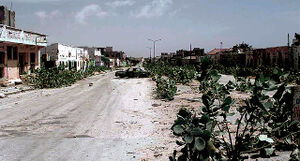War Diaries (May 13) (nonfiction)
Previous: May 12 - Next: May 14
Diaries
Isaac L. Taylor: May 13, 1863
Clear & warm in AM. Clouds up & sprinkles a little in P.M. I finish reading Hitchcock's Geology. We hear that "Stonewall" Jackson died at 3-30 P.M. of the 10th. inst., from wounds recd. in the late battle. He had his left arm amputated. I send to Philp & Solomons "Metripolitan Book Store" 332 Pa. Avenue, Washington D.C. for Wood's Botany. "The decrease of the mean temperature from the equator towards the poles is nearly in the proportion of the cosines of latitude." Hitchcock's Geology, Pg. 306.
—Isaac Lyman Taylor, Company E, First Minnesota Volunteer Infantry (diary)
- http://collections.mnhs.org/MNHistoryMagazine/articles/25/v25i04p342-361.pdf (PDF)
- https://commons.stcloudstate.edu/civil-war-in-mn-lives/exhibits/show/hall-of-the-dead/isaactaylor
J. Willich, Brigadier General Commanding: May 13, 1865
Headquarters, Cincinnati, Ohio
Brigadier General L. Thomas, Adjutant General U.S. Army.GENERAL: I have the honor to submit for your consideration the following statement:
The Thirty-seventh Regiment Iowa Volunteer Infantry, called the "Graybeards," on duty at this post, consists exclusively of old men-none under forty-five, many over sixty years of age. After the men of this regiment had devoted their sons and grandsons, numbering thirteen hundred men, to the service of their country, their patriotism induced them to enlist themselves for garrison duty, thus enabling the government to send the young men to the front. Officers and men would cheerfully remain in the service as long as they are wanted, though they are very much needed at home to save the next harvest, most of them being farmers. I most respectfully submit to you whether there is any necessity now to hold these old men under such heavy sacrifices. They have received the commendations of their former post commanders. At this post they have performed very heavy duties, which to perform would even have been difficult for an equal number of young men. The high patriotism displayed by these men in devoting a few years of their old age to their country's service is unparalleled in history, and commands the respect of every patriotic citizen of the United States. I therefore most respectfully recommend that the Thirty-seventh Iowa Volunteer Infantry may be mustered out of the service immediately, with the honors and acknowledgments of their services, due to the noble spirit with which they gave so glorious an example to the youths of their country.
Very respectfully, your obedient servant, J. Willich,Brigadier General Commanding.
—Brigadier General Commanding J. Willich (letter to Brigadier General L. Thomas, Adjutant General U.S. Army)
Elisabeth Kaufmann: May 13, 1940
As a result of the political developments terrible measures were taken today. [Quoting the newspaper:] “. . .Tout les ressortissants de l’Empire Allemand et les Dantzigois, Sarrois, Rheinians [sic] de deux sexes de 17 à 55 vont être internés. . .’ [All nationals of Germany, Danzing, the Saarland, the Rhineland, male and female, age seventeen to fifty-five are going to be interned.] [. . .] Across from us lives a German family. The mother is in her late forties, the father in his mid-fifties. They have two daughters, eighteen and twenty years of age, and one son who will be seventeen next week. The members of the family will be completely separated for the duration of the war. The father will be the first to go into the camp although he was only recently discharged [from the camp] as “loyal.” His son will follow him a few weeks. The mother and her daughters must go into another camp. I should add that the mothers is almost totally deaf and not well.
We, as Austrians, are in a great sense of anxiety. The official decree does not clearly state whether Austrians fall under the internment order, or whether we have been excepted. Mother and I—I skipped school today—are running from one office to another and are being given evasive answers. One commissioner says "yes" and another "no." They play with our nerves as if they were toys. This kind of day is nerve-wracking and filled with doubt about losing in the next three days what one values most in life, what is left of our personal freedom.
Should I now really go to school? One can go crazy. I am going to see whether the people at the Austrian Committee on the Madeleine know anything. They should have been given some instructions, but they usually know nothing when it comes to something important. [. . . ]
—Elisabeth Kaufmann, diary (Paris)
E.M. Larsson: May 13, 1993
One gets so tired of all the gunshot wounds over here.
—E.M. Larsson, a Swedish doctor (diary from the war in Somalia)
In the News
Fiction cross-reference
Nonfiction cross-reference
External links
- http://collections.mnhs.org/MNHistoryMagazine/articles/25/v25i04p342-361.pdf (PDF)
- https://www.facinghistory.org/resource-library/text/elisabeth-kaufmann-s-diary-entry-french-internment-camps-may-13-1940
- https://www.ncbi.nlm.nih.gov/pubmed/8140812
- https://uppsala.academia.edu/EmLarsson TO_DO: verify
